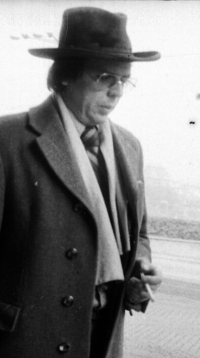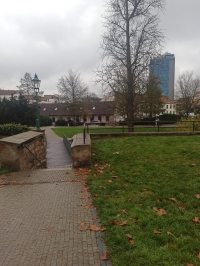„Damals schien es endgültig zu sein. Wir waren überzeugt, dass die Sowjets uns nicht aus ihren Fängen lassen würden“.

Stáhnout obrázek
Als Sohn eines russischen Emigranten, der vor den Bolschewisten geflohen war, machte sich Ilja Sedo keine Illusionen über das sozialistische System. Sein Widerstand wurde durch die frustrierenden Erfahrungen des Sommers 1968 noch verstärkt. Ironischerweise sollte er zwischen 1970 und 1972 im Grenzschutz dienen. Als Hundeführer in Debrník bei Železná Ruda musste er während seiner Dienstzeit keine Todesfälle an der Grenze miterleben, dafür aber Dutzende von Festnahmen. „Allein im September 1972 hatten wir auf einer Strecke von sieben Kilometern etwa fünfzig Festnahmen in einem Zeitraum von sechs Monaten.“ Dabei handelte es sich hauptsächlich um Bürger aus der damaligen DDR, die versuchten, über die Tschechoslowakei in den Westen zu gelangen. „Die Deutschen waren an der Grenze sehr verwirrt. Mehrmals kamen sie mit einem Trabant direkt zu uns und fragten, wie sie nach Deutschland kommen.“ Trotz gesundheitlicher Beeinträchtigungen interessierte sich Ilja Šedo nach seiner Rückkehr aus dem Wehrdienst weiter aktiv für das politische Geschehen. Er unterzeichnete eine Erklärung zur Charta 77 beim damaligen Priester der Pilsener Diözese, Václav Malý, und geriet damit ins Visier der Staatssicherheit. Er rechnete überhaupt nicht damit, dass das Regime einmal fallen würde. „Wir waren davon überzeugt, dass es uns lebenslänglich erhalten bleibt. Damit akzeptierten wir unser Schicksal, dass wir für immer als Verlierer und Verräter dastehen würden.“ Text pochází z výstavy Paměť hranice (nejde o překlad životopisu). Der Text stammt aus der Ausstellung Das Gedächtnis der Grenze (es handelt sich nicht um Übersetzung der Biografie).

